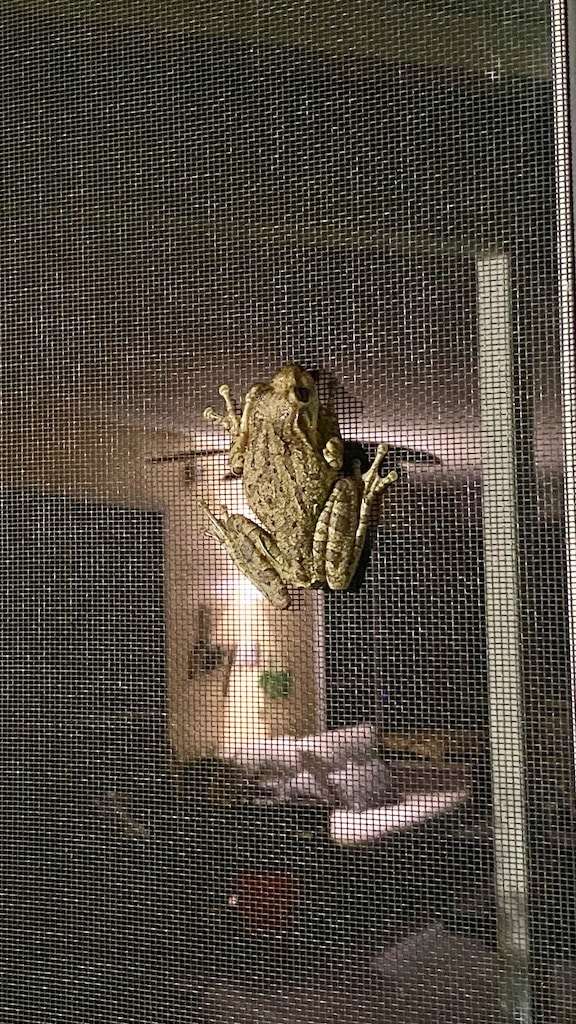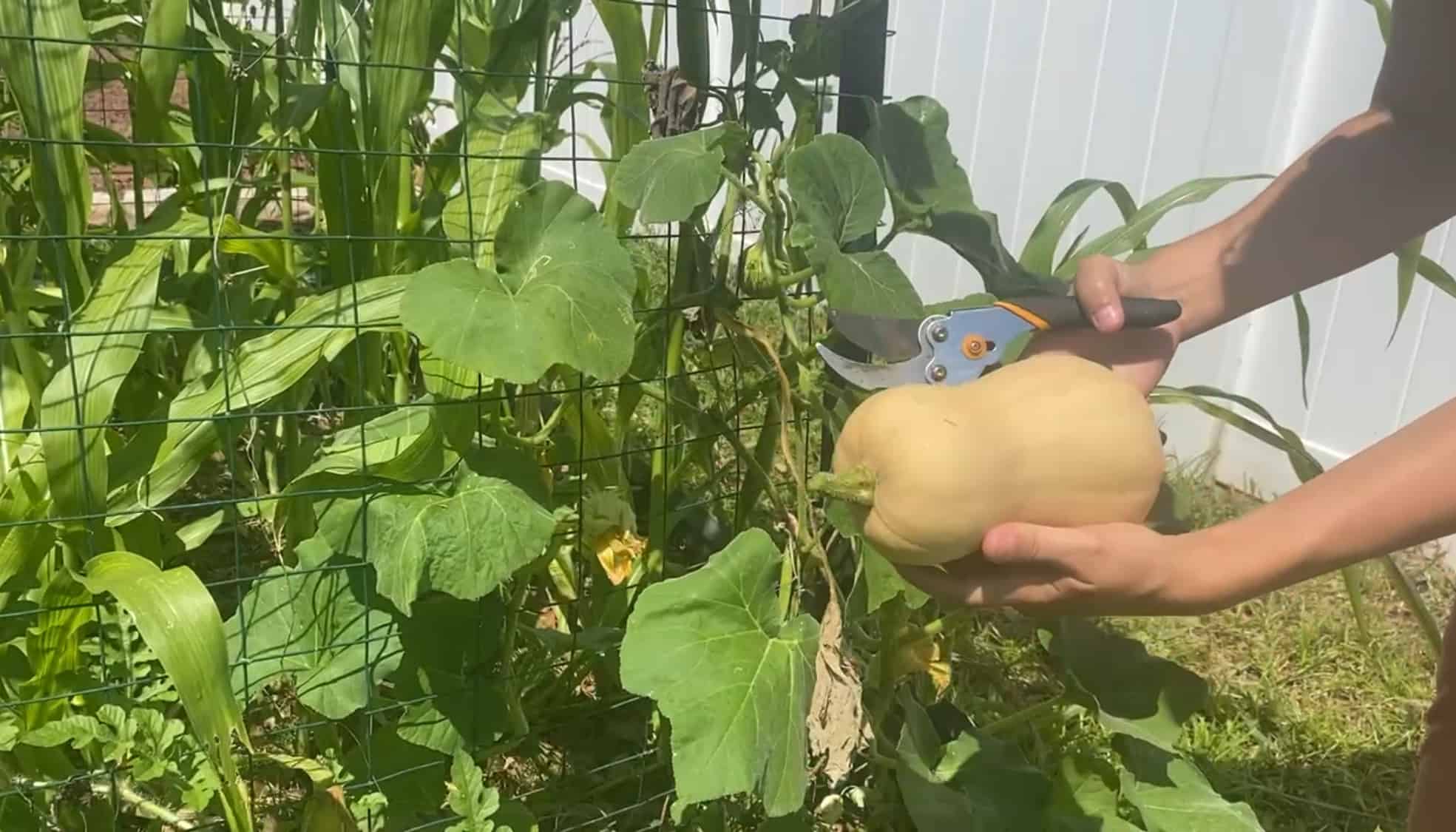Last Updated on April 10, 2025 by Homegrown Florida
If you’ve gardened here in Florida you know pests are relentless. They don’t really take a break—not even in winter. They just slow down, regroup, have babies, and come back full force when the weather heats up. So let’s be real: if you’re gardening organically in Florida, pests are just part of the deal.
But that doesn’t mean we can’t manage them. I’m walking through my favorite pest control methods in my garden and how I treat each one, from the tiniest aphids to full-grown lubber grasshoppers. And make sure you stick around until the end, because I’ll share the number one way I manage pests with the least effort—it’s a game changer.
Table of Contents
This post may contain affiliate links. Read full disclosure here.
The Small Guys: Ants, Aphids, Whiteflies & Spider Mites
Let’s start with the little ones. I’ve got a Greenstalk vertical planter tower full of plants like cabbage, celery, sorrel, and parsley, and all of them are swarmed with whiteflies. Why? Because these plants are out of season now. It’s spring turning into summer, and these cool-weather crops are on their way out. Pests know this before we do and attack weaker plants first. That’s why your tomatoes might look perfect right now, while your winter veggies are looking rough.
When it comes to aphids, they often show up with ants. And no, ants themselves aren’t bad. But they taxi aphids to the juiciest parts of your plant—like the new growth—so they can feed on the sap and then feed the ants with the sugary secretions they leave behind. It’s wild. So if you’ve got ants and aphids, you’ve got to deal with both.
Here’s how I do it:
- Cinnamon: I buy the big ground cinnamon containers and puff it over the plants. It smells like Thanksgiving and keeps ants away—until it rains.
- Diatomaceous Earth (DE): Food grade only. I apply it to the soil, not the plant. It’s sharp to bugs and cuts them up as they crawl over it.
- Insecticidal Soap: After a lot of trial and error (and one major fail with neem oil), I found a brand that works for me. I spray in the evening, especially on plants in my pool cage that don’t get natural pest control methods from the outdoors.
The gentlest and most effective method? Just spray the pests off with water every other day for a couple weeks. It’s time-consuming, but very effective if you want to stay 100% natural.
Dealing with Fire Ants
Fire ants are a different beast. If they’re inside your beds and biting you while you work—no thank you. I deal with them by boiling water. Just pour it right on the nest. I do this every day for a few days and stir up their mound with a stick. They’ll eventually move. Hopefully somewhere like under the compost where I don’t care.
Leaf-Footed Bugs & Stink Bugs

These guys love tomatoes and will ruin them by piercing the fruit. Adults are hard to kill, so I bag my tomato clusters with organza bags. It’s honestly been a game-changer. I also hand-pick the bugs or vacuum them off the plant. Sprays don’t really work on adults, but you can sometimes get the young ones with insecticidal soap or Spinosad.
Mealybugs and Scale
I mostly see these on fruit trees. If they’re not out of control, I don’t usually treat them. But when they are, I use a Q-tip dipped in rubbing alcohol to tap them directly. They die off quick. Another trick: grow trap crops like vining nasturtiums or sweet potatoes. These guys will attract pests and keep them away from your trees.
Leaf Miners

They don’t usually kill the plant, but they make the leaves look awful. I don’t always treat them unless it’s getting bad. You can pinch the squiggly lines in the leaf to crush the worm inside, or clip off damaged leaves. I do both depending on how much damage there is.
Worms: Cutworms, Armyworms, Hornworms, and Pickleworms
Worms show up every season. I handle all of them the same way: Captain Jack’s Deadbug Brew (Spinosad). It lasts longer than BT, doesn’t wash off in the rain, and doesn’t kill bees if you spray it in the evening. I do a monthly maintenance spray in late spring and summer. You can also use netting or collars at the base of plants to stop soil-level worms.
Lubber Grasshoppers

These are the tanks of the bug world. When they’re young, grab them and squish them or vacuum them up. When they’re older, you’ll need gloves and clippers—I won’t get graphic, but they’re tough. I don’t know of any sprays that work on lubbers once they mature, so early control is key.
Slugs & Snails
They love my mulched garden beds. You’ll see holes in the lower leaves. Beer traps work, or use wet cardboard overnight and pick them off in the morning. I also use Sluggo sparingly at the start of spring and again in mid-summer if the population spikes. My niece loves slug hunting at night, so we do that too!
Root Knot Nematodes
Now, let’s talk about one of the most frustrating pests we deal with in Florida: root knot nematodes. These guys live in the soil and attack the roots of your plants, especially in sandy soils like we have here. You won’t usually see them until your plant starts declining—yellowing, stunted growth, wilting—and by the time you dig it up, the roots are full of little knots or galls. That’s how you know it’s nematodes.
The worst part? There’s no spray for them. You can’t just treat them like aphids and move on. But here’s what I’ve found that helps:
- Plant Resistant Varieties: Some crops and varieties handle nematodes better. When you’re picking out seeds, look for anything marked as nematode-resistant.
- Add Organic Matter: The more organic matter you have, the more beneficial microbes you get—and some of those actually eat nematodes or compete with them. Compost, worm castings, leaf mold, all of it helps.
- Trap Crops: I’ll sometimes plant marigolds, especially the French varieties. They’re great at reducing nematode populations. Let them grow for a bit, then chop and drop them right in the bed.
- Rotate Your Crops: Don’t plant the same thing in the same bed season after season. Switch it up, especially if you know that bed had nematodes.
- Solarize the Soil: If all else fails, in summer, when it’s blazing hot, I’ll cover an empty bed with clear plastic for a few weeks. That heat cooks the nematodes in the top few inches of soil. It’s like nature’s reset button.
Root knot nematodes are tricky because once you’ve got them, they’re in your soil. But with some patience and a few of these methods, you can get ahead of them and still grow a great garden.
Compost Crew: Spiders, Millipedes, Roaches & Worms
These guys gross me out, but they’re the workhorses of your compost and soil. Spiders are predatory, millipedes and roaches break down mulch, and soldier fly larvae in compost are a good sign! As long as it’s not an infestation, I let them do their thing.
Lizards, Frogs & Iguanas

Lizards and frogs are mostly helpful—yes, even the scary wolf spiders. They eat bugs and usually don’t cause problems. But South Florida folks with iguanas? I feel for you. They’re destructive. A full cage or fence around your garden is probably your best bet. For the rest of Florida, you probably get your fair share of cuban tree frogs and anoles which are invasive but don’t tend to impact the typical backyard garden.
Rodents: Mice, Rats, Voles & Squirrels
This is where my dogs come in—especially Chloe, our designated squirrel patrol. If you don’t have pets, barn cats are another option. Traps also work, but avoid sticky ones since they can be indiscriminate. For squirrels, I distract them with food and water outside the garden, cover my fruits with bags, and fence my yard to keep them out.
Birds & Bigger Critters
Birds are usually helpful. But if they start going after strawberries or peas, I use netting or even fake snakes and painted rocks. A water bowl goes a long way toward keeping them away from your fruit since they are often just looking for a water source. For deer and raccoons, it’s all about the fence. A slick, secure fence is your best bet, though electric or spiky hedges can help too.
If you’re looking for even more detailed guidance on growing veggies here in Florida—like when to start seeds, how to manage pests, and what varieties really thrive—don’t forget to check out my ebook! It’s got a chapter for every single vegetable and is packed with everything I’ve learned over the years gardening in Florida.
The #1 Pest Solution: Integrated Pest Management
This is the most important pest control methods, so don’t skip it. Integrated Pest Management (IPM) means letting nature take the lead. Instead of spraying everything, I build a balanced ecosystem where good bugs keep the bad bugs in check.
Here’s how:
- Mix up your plantings—don’t plant all tomatoes together.
- Add herbs and flowers as companion plants.
- Grow native plants to attract pollinators and predators.
- Avoid spraying unless it’s really necessary and only apply to affected areas.
- Use the least invasive method first—like water, hand-picking, or a little cinnamon—before reaching for sprays.
The first season might be rough, but by letting pests build up a little, you actually invite the good bugs in since they will have an ample food source. Once they find you, they stick around. Usually the bad bugs outnumber the good bugs so you don’t need a lot to manage a very large infestation. I hardly ever treat my garden anymore, and it’s because of this approach.




